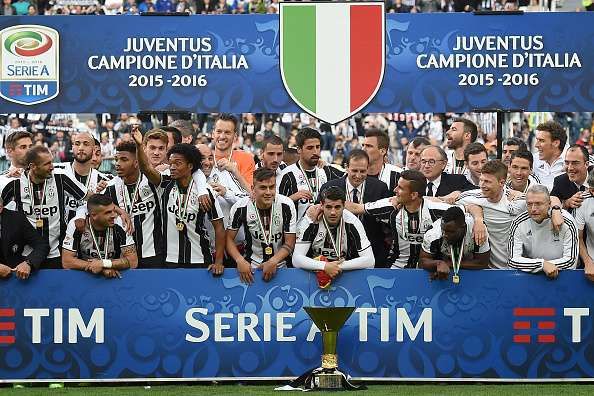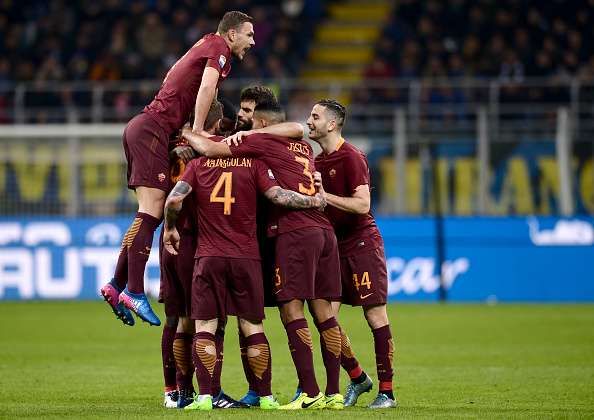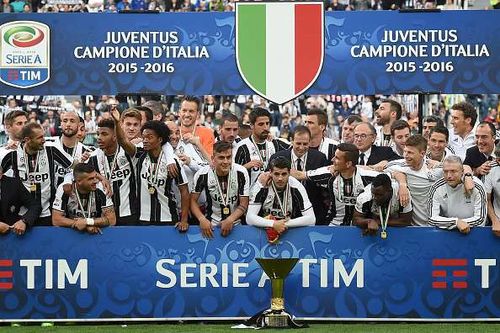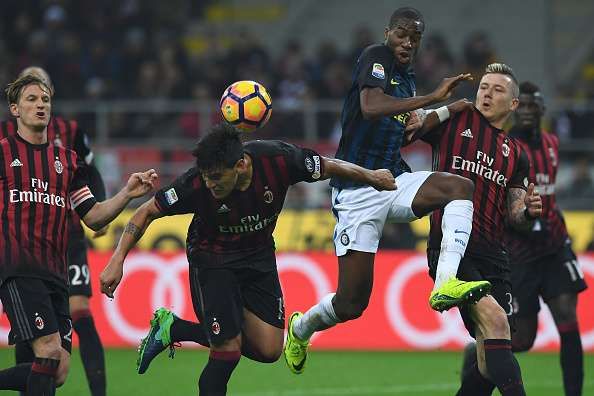
Will the Serie A ever be relevant again?
When Andriy Shevchenko side-footed the winning penalty past Gianluigi Buffon in 2003 Champions League final to edge AC Milan over Juventus for the trophy, Serie A was a fearsome prospect. Crosstown rivals Inter Milan had been narrowly knocked out on account of away goals by AC Milan in the semis, and Juventus had beaten Real Madrid and Barcelona on their way to the finals.
Over the next few years, AC Milan would reach the Champions League final two more times, winning one and losing the other; not to mention reaching the semi-finals in 2006. Inter Milan would win the treble with Jose Mourinho in 2010. Italy won the World Cup in 2006 with the core of their team from Juventus and AC Milan, leaving little doubt about the class of players that plied their trade in Serie A.
Also Read: Top 5 greatest moments in the history of Serie A
When Serie A lost its 4th CL spot to Germany from 2012-13 onwards, the strong media backlash in Italy was understandable – the country and its fans were yet to come to terms with the decline of Serie A. Epitomised by the long-term struggles of the Milan giants, 2017 finds Serie A as irrelevant as it has ever been in the European context; an afterthought in the map of football kept alive only by the occasional forays of Juventus.
So, will the Serie A ever be relevant again?
Juventus – The lone saviour or the competition killer?
When a team dominates a league like Juventus, PSG and Bayern have done in Italy, France and Germany respectively over the last few years, eventually, any other title contender becomes a neutral's favourite. There are clamours for Juventus to be slain, at least in the Serie A, which brings us to the question – Is Juventus' dominance good for the overall relevance of Serie A?
Since Mourinho's UEFA Champions League win with Inter Milan, only one Italian team has reached the semi-final stage till date – Juventus in 2015, who progressed till the final. From 2011 to 2013, just one Serie A team managed to reach the quarter-final stage each season. In 2014 and 2016, no one did.
Juventus managed to reach the Europa League semis as well, in 2014 – other than that, from 2010 to 2013 and in 2016, no Serie A team managed to reach even the Europa semis. In 2015, both Napoli and Florentina made it to Europa semis – though neither managed to reach the final.
Therefore, Juventus is currently performing the thankless task of keeping Serie A's European coefficient alive – so if not for their domestic fiefdom, Italian fans should be grateful to Juventus at least for their valiant European ventures.
Milan giants – Truly done and dusted?
In 2010, Inter did the famous treble with Mourinho at the helm. It was their fifth straight Serie A title; having won the title by 7, 22, 3, 10 and 2 points in those five years. In 2011, AC Milan won the Serie A title back from their cross-town rivals after 7 years. Alas, these represent the pinnacle the Milan clubs would reach since the turn of the decade.
Fast forward to 2017 – 26 games into the season, Inter is 18 points behind Juventus, on course to widen the gap to the top even further this season after finishing 24 points behind Juventus last term. Milan is 1 point behind Inter in 7th position – the most worrying aspect of that being their fans are not even really astonished; in fact, a fight for Champions League places would have been considered something of an overachievement. So why have the Milan clubs struggled so badly in recent years?
Also Read: 5 reasons why AC Milan will be a superpower again
Inter has been led by no fewer than 10 managers since Mourinho left – their current manager, Stefano Pioli is their 10th manager in 7 years! AC Milan, meanwhile, had a relatively stable period till 2014 under Massimiliano Allegri. Having finished 2nd and 3rd in 2012 and 2013, Milan sacked Allegri after finishing 8th in 2014 – and currently serving is their 6th manager in the 3 years since.
Other than the instability at managerial level, Milan clubs also paid for a failure to replace their ageing squad around the turn of the decade. Inter's Champions League winning squad had Zanetti, Toldo, Materazzi, Lucio and Milito among others, all in their thirties. Milan's title winning squad a year later had Pirlo, Gattuso, Nesta, Seedorf, Inzaghi – all, with the exception of Pirlo, past their very best abilities.
Now Chinese investors have stakes in both Milan clubs. The takeover of AC Milan by Sino-Europe Sports is expected to be completed by March 2017; a joint venture of Suning Holdings group and Suning Appliance group purchased the majority stake of Inter Milan in June 2016.
Hopefully, it signals new beginnings for the Milan clubs – for the sake of themselves, but more importantly, for the sake of Serie A as a whole.
The rest of the crop

Roma, Napoli and Florentina are the other clubs who have occupied the top regions of the table in the last few years. Roma have advanced to the last 16 of the Europa League, where they face Lyon – despite it being a tough draw, Roma remain one of the favourites for the competition after Manchester United. Serie A fans will have their fingers crossed.
For all their merits, though, it is perhaps too much to ask of them to raise the profile of Serie A in Europe. Florentina have already been knocked out of Europa after a 15-minute blitz by Borussia Monchengladbach, to come back from 3-0 down aggregate to win the tie 3-4. Napoli faces the unenviable prospect of coming back from a 3-1 deficit against Real Madrid in the Champions League round of 16.
Also Read: Italian Serie A: 20 teams are too many
Domestically as well, none of these teams harbour any hope of catching up with Juventus. They remain embroiled in their customary tussle for the European places, having come to terms with their limitations – Roma and Napoli have conceded the title as runners-up to Juventus two times each in the last 4 years, with gaps of 17 points and 9 points respectively.
For all the brave conquests by Roma, Napoli and Florentina, Italy still needs a genuine return of the Milan clubs to restore its former glory. Juventus might keep the boat floating for now – but time is running out for Serie A if it does not wish to vanish into the second string of European leagues alongside the likes of Portugal and Netherlands.

